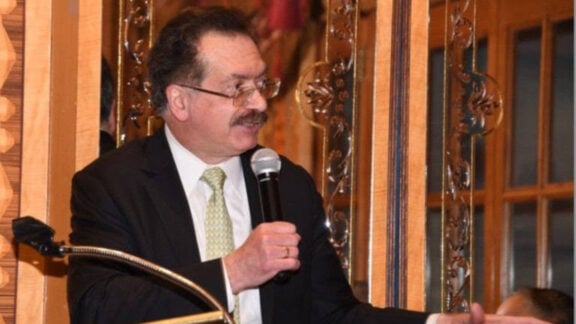The University of Sydney has held its first conference on Greek studies in two years, with results suggesting diaspora Greeks are turning away from cultural studies following Greece’s crippling economic crisis.
The three-day conference, held last week, included speakers from the United States, Canada, Norway and Vietnam, examining the influence Greek studies have on the global stage with efforts to reinvigorate numbers in Greek programs.
Professor Vrasidas Karalis, from the University of Sydney, spoke to Neos Kosmos about the outcomes of the conference, suggesting scholars and the Greek community need to stimulate the way Greek is taught, and stem contemporary negative connotations associated with the culture.
“The conference was about what is happening in Greek studies in general worldwide, after the crisis. Overall we found that the situation is too complex and chaotic and we need to have more collaboration and more communication with each other in order to understand the complexity of the situation worldwide. It’s not a local phenomenon we are dealing with, it has encompassed the whole Greek situation in the whole world.”
Professor Karalis said the economic crisis faced by Greece has had far-reaching consequences, with a collapse of national culture also effecting the diaspora.
“We have to think what the perspectives of Greek studies are, how we can restructure Greek language, because we have seen that many students do not want to take Greek studies, because they were really upset about what happened in Greece and it almost took on a form of stigma.”
“For national Greek ‘Helladists’, the situation is still very fluid because there are no solutions. The political problem still goes on and the Greeks of Greece mostly believe this is something temporary and something that will not last forever, but in reality this has completely changed everything that we know about Greece.”
He said the underlying problems faced by ‘Hellenism’ relate to the country’s destabilising political structure, suggesting diaspora Greeks are far more sympathetic to, and optimistic about, a return to normality than their national counterparts. This is due in part to their functioning living environments, and social and political security.
But he emphasised the need to influence a greater number of second, third and fourth generation Greek students to undertake Greek studies, as opposed to forcibly pushing it on them, as was the case in the early days of Greek migration, including in Australia.
“It’s very important to see Greece and the Greek language and the Greek culture as part of a global culture as well, not something peripheral and marginal and doing it simply because of familial ties. Don’t forget most students used to be forced to take Greek studies, that’s why they never did it, they didn’t do it out of love, they did it out of duty and what you do out of duty you don’t really like.”
Despite negative stereotyping, conference speakers urged diaspora Greeks to be increasingly self-critical, to continue (what it hailed) a successful display of the richness and influence Hellenism has had on the world.








